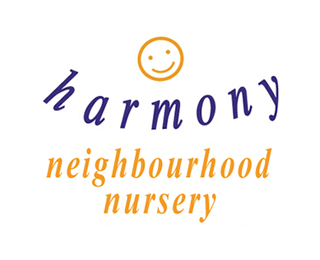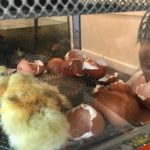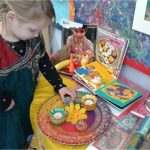-
Here you’ll find some answers to Frequently Asked Questions regarding our nursery and our approach to childcare.
If you can’t find the information you need here or anywhere else on our website please contact us by clicking on the button below.
-
When does the nursery open?
The nursery opens at 08.00 am every morning and closes at 6.00 pm Monday to Friday. The nursery is open 50 weeks a year – we are closed all bank holidays and Christmas week and Easter week.
What is a typical daily routine in a nursery?
The Routine in our nursery is flexible according to the needs of the children. However, children thrive with consistency, punctuality and routine. Below is a view of a day which consists of the following types of activities:
• Nursery opening- welcoming children and families into the nursery.
• Breakfast time – we offer healthy breakfast choices according to individual dietary requirements.
• Circle time/songs/stories – welcome, singing, weather, and individual news.
• Continuous provision/independent choosing – the children will have access to a range of resources and activities to support their development. Children will be able to play and learn with the support of their key person and other nursery practitioners. Outdoor play is accessible throughout the day.
• Activities: We provide activities which are suitable for your child’s age. They are designed to encourage your child’s social, creative, communication and listening skills, as well as physical and emotional development. For example, painting, music and singing, story sessions, puppets, messy play activities – wet and dry sand, water, playdough, soil, mud kitchen, dressing up and a role play area, bikes, scooters, climbing equipment, balls, hoops, building blocks and materials, IT equipment i.e. cameras, video recorders, calculators and computers. Treasure baskets, heuristic play, musical instruments and a range of other resources are available according to age and stage of development.
• Snack time and lunch – We offer a range of healthy seasonal fruits and meals, catering for individual dietary requirements and allergies.
• Individual development – your child’s key person will plan activities that will support your child’s individual development. They will observe your child daily and use these observations to plan their ‘next steps’ in their learning journey.
• Closing time- A brief opportunity for parents to get feedback on their child/ren day.
Will my child have a key person, and how many other children will they have?
Each child must be assigned a key person, their role is help build a secure relationship with both you and your child and be the person who ensures the care is tailored to your child’s needs. The number of children they have will depend on the age group i.e. under 2 years 1:3, two years to three: 1:4 and three years to five: 1:8.
How do you ensure the safety of the children in your care?
The following procedures are in place:
• We have high adult child ratio.
• We carry out risk assessments both of the indoors and outdoors space whenever children are taken on an outing. We are also required to record any accidents or incidents and any medication that is given.
• We have CCTV on premises so no one is able to enter without authorisation and monitored throughout the day.
• Following our child collection procedure, no-one is allowed to collect your child without written authorisation from you.
What should my child bring with them to the nursery?
• At least one full change of clothes, more if they are toilet training, in a bag which is not plastic or drawstring.
• Sun hats and sun cream for spring/summer. Outdoor coat, Wellington boots, hat, scarf and gloves for autumn/winter.
• Comforter if required.
• Medication if required (please consult our Medication Policy).
• Please clearly label all your child’s belongings with their full name.
How I will be informed about my child’s development?
The practitioners will carry out observations on children to ensure each child is making progress and also to identify any area of need. We are required to provide ongoing feedback at the age between 2 and 3 years old, providing a progress developmental check.
Parents are invited to regular “Working in Partnership“ meetings to discuss your child’s development at which you will be asked to contribute your thoughts, ideas and needs. These will be agreed with your child’s Key Person who can then put them into practice. These meetings will be initiated regularly by your child’s Key Person to ensure you are kept abreast of your child’s progress and/or on other occasions such as when your child is moving rooms or changing Key Person, or for more developmental matters like potty training, weaning, teething, supporting behaviour, etc. You may also request meetings at any time.
We always strive to ensure your child experiences consistency in nursery and your contribution is vital towards achieving this. Therefore we record all our meetings in your child’s learning journey, creating memories for you to look back on in years to come. Your child’s learning journey is a folder we create upon your family joining Harmony. This is your property. However, for the duration of your child’s adventures at nursery it will remain with us until the day arrives when they move on to school. Your child’s learning journey records all your child’s learning and development, inclusive of observations jotted down by his/her Key Person, photographs and artwork. You are encouraged to access the learning journey folder whenever you wish and to contribute to it with your own observations of your child’s achievements and developmental milestones. If it is not readily available please just ask and we will be more than happy to show you.
How do you manage children’s behaviour?
We follow our behaviour policy by focusing on positive strategies; it encourages caring attitudes for everybody towards each other and our environment. We hope that children will learn through the example we set. Methods are used such as distraction, visual aids and verbal reminders of positive behaviour in order to support their personal, social and emotional development. Praise is the best motivator. Children will grow in confidence if given praise as a reward.
- Home
- About Us
- -- Our History
- -- Our Values
- -- Management Committee
- Parent Info
- -- Fees
- -- Classes
- ---- Pluto
- ---- Venus
- ---- Jupiter
- ---- Outdoor Play
- -- Curriculum
- -- Calendar
- -- Food/Nutrition
- -- Parent FAQ's
- -- School Readiness
- -- Term Update 2022
- -- Testimonials
- Gallery
- News
- -- News & Events
- -- Articles
- Contact Us



